 W
WRaymond Antonini, known as Ray Anthony, is an American bandleader, trumpeter, songwriter, and actor. He is the last surviving member of the Glenn Miller Orchestra.
 W
WEdwin Joseph Bocage, known as Eddie Bo, was an American singer and pianist from New Orleans. Schooled in jazz, he was known for his blues, soul and funk recordings, compositions, productions and arrangements. He debuted on Ace Records in 1955 and released more single records than anyone else in New Orleans other than Fats Domino.
 W
WHadda Brooks was an American pianist, vocalist and composer. Her first single, "Swingin' the Boogie", which she composed, was issued in 1945. She was billed as "Queen of the Boogie". She sang at Hawaii's statehood ceremony in 1959 and was asked for a private audience by Pope Pius XII.
 W
WTony Russell "Charles" Brown was an American blues singer and pianist whose soft-toned, slow-paced blues-club style influenced blues performance in the 1940s and 1950s. Between 1949 and 1952, Brown had seven Top 10 hits in the U.S. Billboard R&B chart. His best-selling recordings included "Driftin' Blues" and "Merry Christmas Baby".
 W
WHayward "Chuck" Carbo was an American R&B singer, best known for his time as a vocalist in the New Orleans group The Spiders.
 W
WJimmy Clanton is an American singer who became known as the "swamp pop R&B teenage idol". His band recorded a hit song "Just a Dream" which Clanton had written in 1958 for the Ace Records label. It reached number four on the Billboard chart and sold a million copies. Clanton performed on Dick Clark's American Bandstand and toured with popular artists like Fats Domino, Jerry Lee Lewis and the Platters.
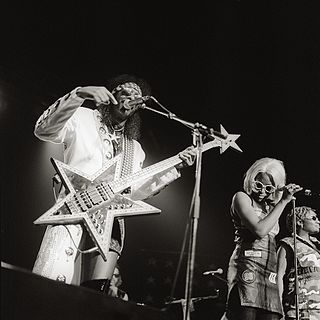 W
WWilliam Earl "Bootsy" Collins is an American musician, singer and songwriter.
 W
WJames "Sugar Boy" Crawford, Jr. was an American R&B musician based in New Orleans. He was the author of "Jock-A-Mo" (1954), which was later rerecorded as "Iko Iko" by the Dixie Cups, and became a huge hit. The song was recorded by many other artists, including Dr. John, Belle Stars, the Grateful Dead, Cyndi Lauper, and by Glass Candy.
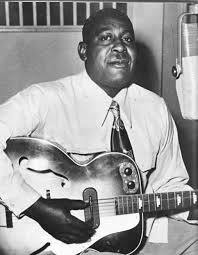 W
WArthur William "Big Boy" Crudup was an American Delta blues singer, songwriter and guitarist. He is best known, outside blues circles, for his songs "That's All Right" (1946), "My Baby Left Me" and "So Glad You're Mine", later recorded by Elvis Presley and other artists.
 W
WIrving Lee Dorsey was an American pop and R&B singer during the 1960s. His biggest hits were "Ya Ya" (1961) and "Working in the Coal Mine" (1966). Much of his work was produced by Allen Toussaint, with instrumental backing provided by the Meters.
 W
WElmer Lee Fields is an American soul singer, sometimes nicknamed "Little JB" for his physical and vocal resemblance with James Brown. He has worked with Kool and the Gang, Hip Huggers, O.V. Wright, Darrell Banks, and Little Royal. Fields has also worked with legends such as B.B. King, Clarence Carter, Dr. John, Tyrone Davis, Johnny Taylor, Denise LaSalle, Bobby Blue Bland, Betty Wright, The Manhattans, Little Milton and Bobby Womack. He recorded his first single in 1969 and is still active. His recent work is with The Expressions, including the albums Faithful Man (2012), Special Night (2017), and It Rains Love (2019).
 W
WFrankie Ford was an American rock and roll and rhythm and blues singer, best known for his 1959 hit "Sea Cruise".
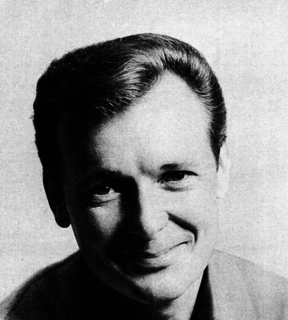 W
WJohn Gary was an American singer, recording artist, television host, and performer on the musical stage.
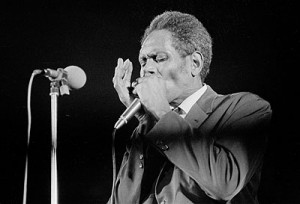 W
WWalter Horton, known as Big Walter (Horton) or Walter "Shakey" Horton, was an American blues harmonica player. A quiet, unassuming, shy man, he is remembered as one of the premier harmonica players in the history of blues. Willie Dixon once called Horton "the best harmonica player I ever heard."
 W
WAlbert Nelson, known by his stage name Albert King, was an American blues guitarist and singer whose playing influenced many other blues guitarists. He is perhaps best known for the popular and influential album Born Under a Bad Sign (1967) and its title track. He, B.B. King, and Freddie King, all unrelated, were known as the "Kings of the Blues." The left-handed King was known for his "deep, dramatic sound that was widely imitated by both blues and rock guitarists."
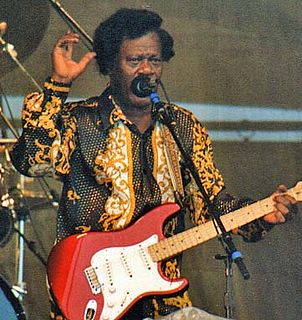 W
WEarl Silas Johnson IV, known as Earl King, was an American singer, guitarist, and songwriter, most active in blues music. A composer of blues standards such as "Come On" and "Big Chief", he was an important figure in New Orleans R&B.
 W
WOtis Verries Hicks, known as Lightnin' Slim, was an American Louisiana blues musician, who recorded for Excello Records and played in a style similar to its other Louisiana artists. The blues critic ED Denson ranked him as one of the five great bluesmen of the 1950s, along with Muddy Waters, Little Walter, Howlin' Wolf and Sonny Boy Williamson.
 W
WBobby Marchan was an American rhythm and blues singer, songwriter, recording artist, bandleader, MC, and female impersonator.
 W
WJames David Walker Jr., better known by his stage name Jimmy McCracklin, was an American pianist, vocalist, and songwriter. His style contained West Coast blues, Jump blues, and R&B. Over a career that spanned seven decades, he said he had written almost a thousand songs and had recorded hundreds of them. McCracklin recorded over 30 albums, and earned four gold records. Tom Mazzolini of the San Francisco Blues Festival said of him, "He was probably the most important musician to come out of the Bay Area in the post-World War II years."
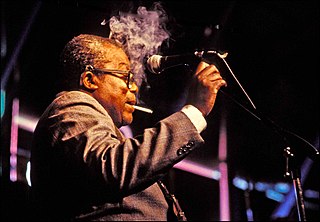 W
WSamuel Joseph Myers was an American blues musician and songwriter. He was an accompanist on dozens of recordings by blues artists over five decades. He began his career as a drummer for Elmore James but was most famous as a blues vocalist and blues harp player. For nearly two decades he was the featured vocalist for Anson Funderburgh & the Rockets.
 W
WThe Silhouettes were an American doo wop/R&B group, whose single "Get a Job" was a number 1 hit on the Billboard R&B singles chart and pop singles chart in 1958. The doo-wop revival group Sha Na Na derived their name from the song's lyrics. "Get A Job"' is included in the soundtracks of the film American Graffiti, Trading Places and Stand By Me. The Silhouettes performed in the 1986 movie Joey.
 W
WJo-El Sonnier is an American singer-songwriter and accordionist who performs country music and Cajun music. Originally signed to Mercury Nashville Records, Sonnier charted several minor singles on the Billboard country charts in the late 1970s. By the late 1980s, he had signed to RCA Records, breaking through with the Top Ten hits "No More One More Time" and a cover of Richard Thompson's "Tear Stained Letter". Although his chart success waned by the late 1980s, he has continued recording music. He has recorded more than 30 albums, primarily on independent labels.
 W
WBenny Spellman was an American R&B singer, best known for the 1962 single "Lipstick Traces " and its B-side "Fortune Teller", both written by Allen Toussaint.
 W
WYusuf Hazziez, known professionally as Joe Tex, was an American singer and musician who gained success in the 1960s and 1970s with his brand of Southern soul, which mixed the styles of funk, country, gospel, and rhythm and blues.
 W
WAlvin Owen "Red" Tyler was an American R&B and neo-bop jazz saxophonist, composer and arranger, regarded as "one of the most important figures in New Orleans R&B".